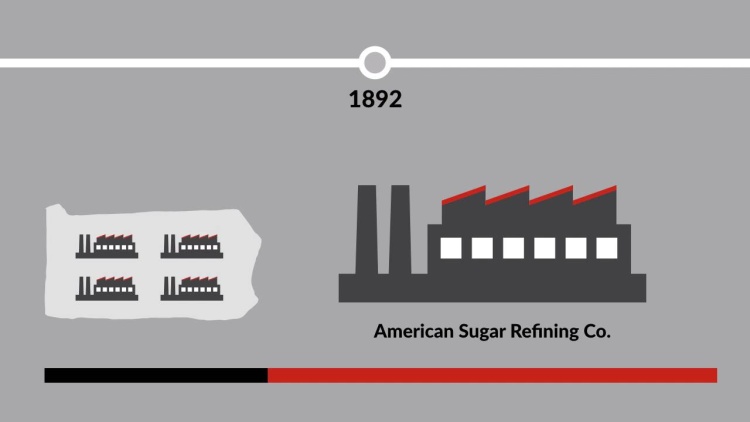United States v. E.C. Knight Co.
United States Supreme Court
156 U.S. 1, 15 S. Ct. 249 (1895)
- Written by Megan Petersen, JD
Facts
In 1890, Congress enacted the Sherman Antitrust Act in an effort to prevent monopolies or restrictive trade agreements that would severely reduce economic competition among businesses. In 1892, the American Sugar Refining Company gained control of the E.C. Knight Company (defendant) and several other sugar manufacturers through sales of stock. The result was to give the American Sugar Refining Company a 98 percent monopoly over the American sugar refining industry. The United States government (plaintiff) sued the E.C. Knight Company for violating the antimonopoly provisions of the Sherman Antitrust Act in an effort to suppress the transaction.
Rule of Law
Issue
Holding and Reasoning (Fuller, C.J.)
Dissent (Harlan, J.)
What to do next…
Here's why 907,000 law students have relied on our case briefs:
- Written by law professors and practitioners, not other law students. 47,100 briefs, keyed to 996 casebooks. Top-notch customer support.
- The right amount of information, includes the facts, issues, rule of law, holding and reasoning, and any concurrences and dissents.
- Access in your classes, works on your mobile and tablet. Massive library of related video lessons and high quality multiple-choice questions.
- Easy to use, uniform format for every case brief. Written in plain English, not in legalese. Our briefs summarize and simplify; they don’t just repeat the court’s language.





